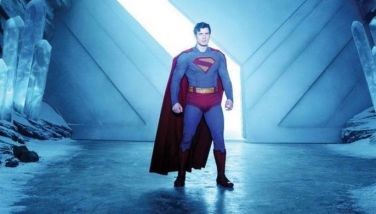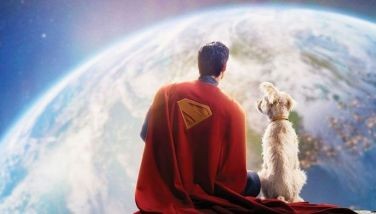Tarantino’s dream come true
MANILA, Philippines - Few directors can claim A-list status like Quentin Tarantino. He reshaped the movie landscape in the early ’90s, as the writer/director responsible for Reservoir Dogs, Pulp Fiction and Jackie Brown. His films struck a nerve with a previously unserved audience, and earned him an Oscar for his Pulp Fiction screenplay.
The 2000s brought another wave of influential films from the master genre-bending talent. In Kill Bill, Uma Thurman’s iconic Bride took revenge on the man who left her for dead. And in Inglourious Basterds, a bunch of vengeance-seeking WWII soldiers go behind enemy lines to execute a plan to take down Hitler.
With Django Unchained — for which he already received the Golden Globe Best Screenplay award and the BAFTA Best Original Screenplay — Tarantino promises to rewrite the rulebook yet again. The film is also vying for five Academy Awards, including Best Picture.
An epic revenge thriller about a black slave in the deep south (Jamie Foxx), the curious and deadly German bounty hunter who frees him (Christoph Waltz) and the dangerous slaver (Leonardo DiCaprio) keeping his wife (Kerry Washington), Django Unchained is true Tarantino: Inventive, funny and no-holds-barred. From the film’s set, on location at Evergreen Plantation in the heart of Louisiana, Tarantino shares his vision.
ItÃs taken a long time for you to do a western, which youÃve long talked about. Is the dream coming true?
“I’ve always wanted to make a Western. For me, just to be able to make movies is a dream coming true, no matter what genre. When I was doing Reservoir Dogs, it was a dream come true to do a gangster movie. I like the idea of trying my hand at different genres — a war film, gangsters, a martial arts movie and now a western. I’ve always liked westerns, and there’ve been western elements in the other ones, so it’s actually nice after disguising them a couple of times — especially in the case of Kill Bill Vol. 2 and Inglourious Basterds — to actually be able to do a western proper. And even then it’s not a western proper, it takes place in the South. Even in that regard, I’m messing with it a little bit.â€
How did you cast Jamie Foxx?
“We got together and he was just terrific. He understood the story, the context of the story and the historical importance of the film. He’s acting for me, he’s acting for cinema, he’s acting for himself but he’s also acting for his ancestors. He gets to do the things that his ancestors weren’t able to do. It’s a very important story for him and for his people, for all people and all Americans. And he got that. He got it 100 percent. He’s a terrific actor and he looks perfect for the character, but there’s the aspect that he’s a cowboy; there’s a cowboy quality to him.â€
Leonardo as Candie, the slaver, is unusual casting. What was it about him?
“Frankly, he let me know he was interested in it. I tried not to be that specific with the character in the script, and I tried not to describe him too much, so it could be open for interpretation. But I was thinking, possibly, of an older actor. And then Leo read the script and liked it and we got together and started talking.â€
(Opening across the Philippines on March 13, Django Unchained is distributed by Columbia Pictures, local office of Sony Pictures Releasing International.)
- Latest
- Trending
































